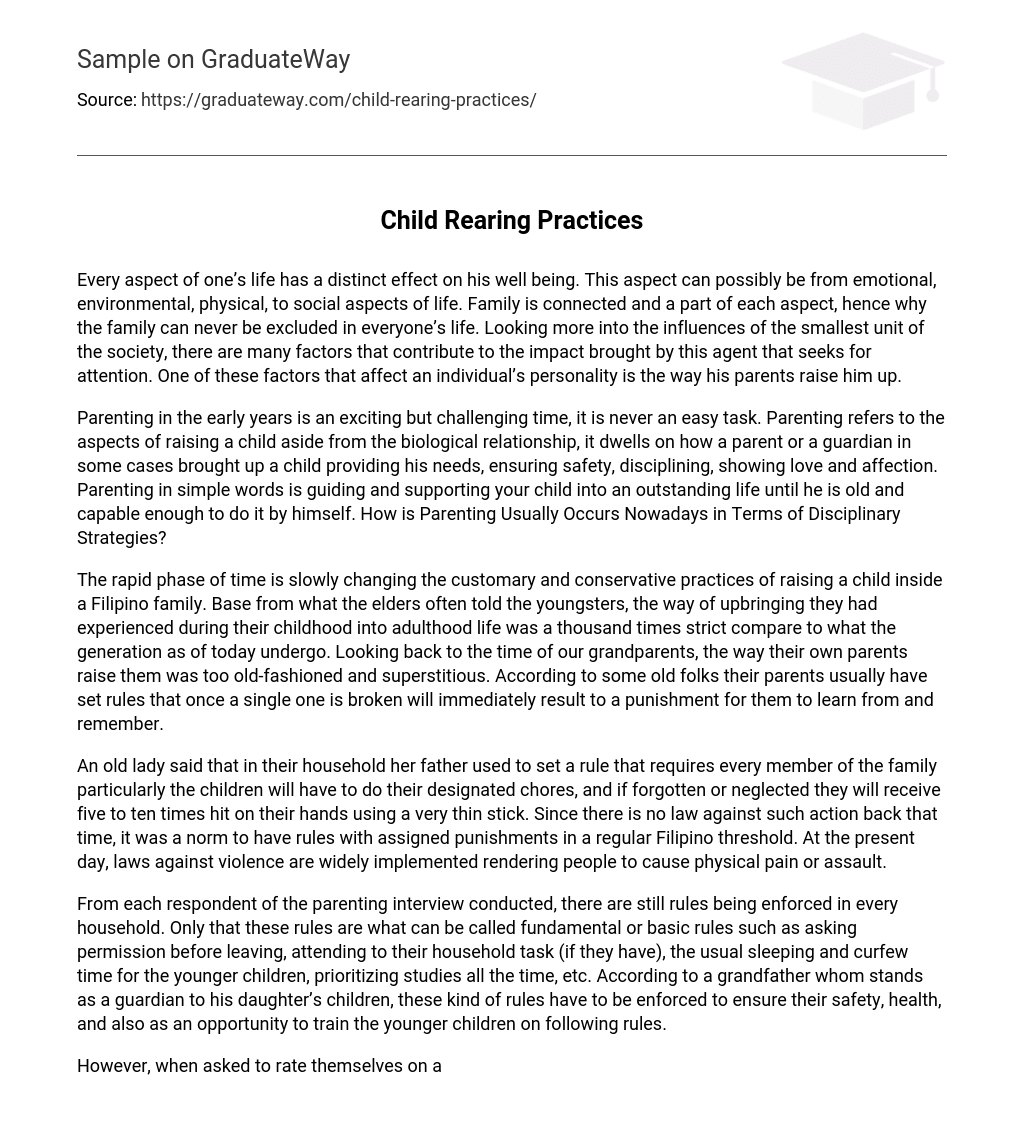Every aspect of an individual’s life, such as their emotions, surroundings, physical health, and social interactions, greatly influences their overall well-being. The family plays a vital role in all these aspects, making it an essential part of one’s life. When considering the impact of the smallest unit of society, several factors contribute to the influence exerted by this entity that demands attention. One factor is how individuals are raised by their parents.
Parenting in the early years can be both exciting and overwhelming. It is a multifaceted duty that extends beyond the biological bond between parent and child, including providing essential resources, ensuring safety, establishing discipline, and showing love and affection. Essentially, parenting involves directing and assisting a child until they achieve independence and self-reliance. Consequently, an important inquiry arises: What are the usual disciplinary techniques utilized in modern parenting?
The traditional methods of raising a child in a Filipino family are gradually being replaced by the fast-paced passage of time. The elders claim that their upbringing, from childhood to adulthood, was much more rigid compared to today’s generation. Looking back, our grandparents’ parents had an outdated and superstitious approach to parenting. Some older individuals recall that their parents had set rules and any breach of these rules would lead to immediate punishment as a way of teaching and instilling discipline.
An elderly woman reminisced about her childhood and how her father enforced a household rule that mandated every family member, especially the children, to perform their assigned tasks. In the event of forgetting or neglecting these chores, they would be subject to receiving five to ten strikes on their hands with a thin stick. This disciplinary practice was considered customary in Filipino households during that era, as there were no laws prohibiting such actions. However, in modern times, laws strictly condemn any form of violence, preventing individuals from inflicting physical pain or engaging in assault.
Every parent interviewed enforces rules in their home. These rules are considered fundamental such as asking permission before leaving, completing household tasks, having set sleeping and curfew times for younger children, and prioritizing studies. A grandfather acting as a guardian for his daughter’s children emphasized the importance of these rules for safety, health, and teaching younger children the importance of following rules.
The majority of respondents indicate that they are moderately lenient with their children, rating their level of strictness on a scale from one to ten. Most rated themselves at five, six, or seven. They justify this by stating that there is no requirement for excessive strictness as their children already comprehend the consequences of their actions. Additionally, they believe that being a positive role model as adults is sufficient.
Parents were surveyed about how they discipline their children when they make a mistake or break a rule. A working mother of two teenage boys shared her approach, which involves having them sit down and then explaining their wrongdoing. She lectures them on why it is inappropriate and should be avoided, and reminds them to never repeat the action. Most parents mentioned that they scold their children first and then engage in a conversation to address misbehavior and enforce discipline.
Parents have differing opinions on how to discipline their children. Some believe that taking away privileges or reducing allowance can discourage repeat mistakes, while others argue that physical punishment, like spanking, should be reserved for specific situations. These parents recognize that physical discipline is not the ideal approach but may resort to it in order to ensure their child’s safety. In such cases, spanking can serve as a means for parents to express frustration and impart a lesson.
According to a widow, there are occasions when it is unavoidable to cause pain, such as a pinch, due to uncontrollable emotions. This is particularly true during times of overwhelming thoughts, problems, and concerns for one’s child. However, parents do not support this disciplinary method and believe it should be minimized. They argue that it can result in trauma, fear, and potentially steer the child towards violence.
Child- Rearing Practices for Warmth and Nurturance: According to Rohner, Khalique, & Cournoyer (2005), all aspects of maternal and paternal nurturing and involvement have a positive correlation with positive traits in peer relationships, self-esteem, and life satisfaction. When parents provide nurturance, children develop a sense of security that allows them to grow up with confidence and establishes a solid foundation for their lives.





